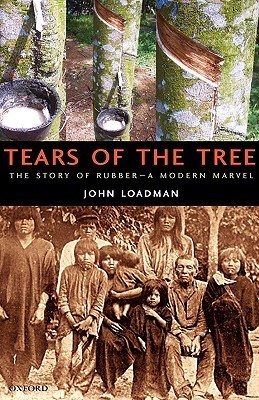Tears of the Tree Book Summary
The Story of Rubber--A Modern Marvel
TL;DR
"Tears of the Tree" by John Loadman explores the four-thousand-year history of rubber, examining its cultural significance, environmental impact, and the lives of those who shaped its story.
What is Tears of the Tree about
"Tears of the Tree: The Story of Rubber--A Modern Marvel" is an insightful exploration of the history and significance of rubber, detailing its transformative journey from ancient rituals to modern-day necessities. The book delves into the lives of adventurers and scientists who contributed to the rubber industry, revealing the material's impact on society and the often-harrowing consequences of its production. Loadman not only chronicles rubber's evolution but also addresses the environmental challenges and ethical dilemmas surrounding its cultivation and disposal, making this book a comprehensive resource for understanding a material that permeates our daily lives.
Tears of the Tree 8 Key Takeaways
Historical Significance
Rubber has been integral to various cultures for thousands of years, featuring prominently in Mayan rituals and later becoming essential to modern technology.
Impact of Exploration
The book recounts the adventures and discoveries of those who sought rubber, highlighting their contributions while also acknowledging the exploitation that accompanied these pursuits.
Environmental Concerns
Loadman discusses the environmental impact of rubber production, including deforestation and the need for sustainable practices in its cultivation.
Biographical Narratives
The author employs biographical elements to bring to life the stories of key figures in rubber's history, providing a human perspective to a largely industrial narrative.
Aging and Deterioration
The book examines why rubber deteriorates over time, offering insights into its material properties and potential methods for enhancing longevity.
Colonial Exploitation
Loadman does not shy away from addressing the darker aspects of rubber production, including the harmful effects on native populations during colonial expansion.
Waste Disposal Solutions
The narrative includes discussions on waste disposal and recycling options for rubber, reflecting contemporary environmental concerns.
Cultural Perceptions
By challenging common perceptions of rubber, the author invites readers to reconsider their understanding of this ubiquitous material.
Top Tears of the Tree Quotes
- "Rubber is not merely a product; it is a testament to human ingenuity and the complexities of our interactions with nature."
- "In the quest for progress, we must remember the lives affected by our choices, especially in the production of resources like rubber."
- "The story of rubber is the story of humanity—full of triumphs, tragedies, and the relentless pursuit of innovation."
Who should read Tears of the Tree?
This book is ideal for history enthusiasts, environmental advocates, and anyone interested in the hidden narratives of everyday materials. Readers will gain a deeper understanding of the implications of rubber's production and its ubiquitous presence in modern life, along with insights into sustainable practices and ethical consumerism.
Tears of the Tree Best Reviews
- "An engaging narrative that intertwines history, science, and ethics, making it a must-read for anyone interested in the unseen impact of everyday materials." - The Book Review
- "Loadman's unique approach to the history of rubber is both enlightening and thought-provoking, shedding light on its hidden costs and benefits." - Historical Perspectives
- "A masterful blend of biography and environmentalism, this book captivates readers while providing critical insights into a material that shapes our world." - Eco-Friendly Reads
People also liked these summaries
Tears of the Tree FAQs
What is the main theme of "Tears of the Tree"?
The main theme revolves around the historical significance, cultural implications, and environmental concerns related to rubber production, presenting a comprehensive picture of its impact on society.
Who should read this book?
This book is suitable for readers interested in history, environmental issues, and the ethical considerations surrounding industrial practices.
Does the book address environmental issues related to rubber?
Yes, the book discusses the environmental impact of rubber production and explores sustainable practices for its cultivation and disposal.
